Back in Antigua, Guatemala when I was on my last trip, upon parting with Nate and Lindsey I told them that I’d come visit them one day… 2 years later I show up in rainy Bellingham, Washington. Bellingham is near the Canadian border and is a very progressive college town. Well, not too progressive but noticeably progressive for this Texan. It’s been a while since I lived in Austin. Check out my old blog’s story about meeting them here.
I’ve been in pretty regular contact on FB with Lindsey but hadn’t heard much of Nate. I learned that he had spent the last 6 months living aboard a tender fishing boat working in Alaska. Lindsey has also spent about a month working on another tender boat. Talk about a hardcore couple but at least they did have a heater installation which worked.
During the busy fishing season, fishing boats don’t have the time to go back to shore to offload. Tenders will buy the fish from the fishing boats and resupply them with food and fuel so they can quickly get back on their way. There are usually four people working aboard a tender– captain, engineer, cook, and a deckhand. Both the pay and working conditions are pretty good. Nate was working as the engineer on the Dancer which is a wooden vessel converted from a cargo carrier in WWII. The Dancer was retrofitted from its cargo duty with huge aluminum tanks on the deck to hold the fish. It is a beautiful machine rich with history and low ceilings.
Pay is either based on the haul or around $150 to $180 per day for the deckhand.
Upon returning to port, the boat will be painted and fixed up for next season.
See the big hose outside of the tank? They use that to pump fish from either the hold of fishing boat or from the water of a purse seining boat.  Purse seining is a technique that is often used to catch salmon in Alaska. They’re a smaller boat that has a huge rectangular net that has cork floats on the top and weighted on the bottom. The skipper will encircle a school of salmon with the net and close the bottom of the net so that the fish don’t escape. They then call a tender boat that will come and pump fish from the pursed net. The seiner will shrink the size of the purse to maintain a density of fish to water to allow the tender’s fish pumps to work effectively.
From the top, you can see the tops of the tanks / deck. There are two tanks that are filled with ice cold water to preserve the fish. In the middle of the tanks is the fish sorting platform.
The output of the fish pumps goes either directly to a tank or to the sorting table where the fish are sorted into either the tanks or overboard.
It is really quite interesting work. The best part was that Nate brought back many many pounds of frozen fish and cooked a delicious meal one of the nights of my stay.
While we were out at the port, I took the opportunity to get Nate to shoot some vanity shots of me and the bike.

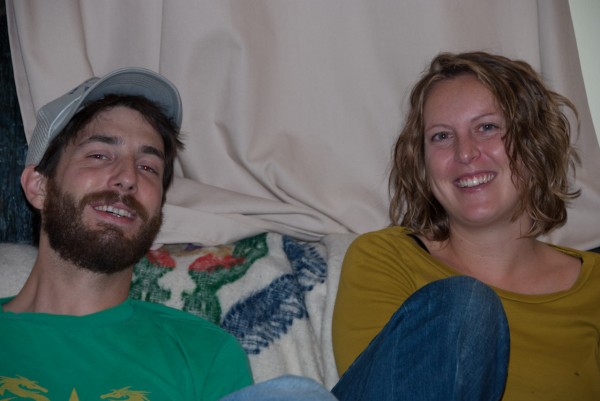
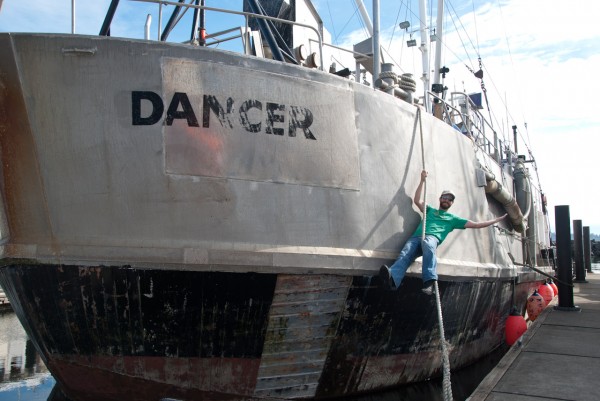
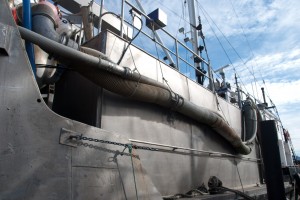
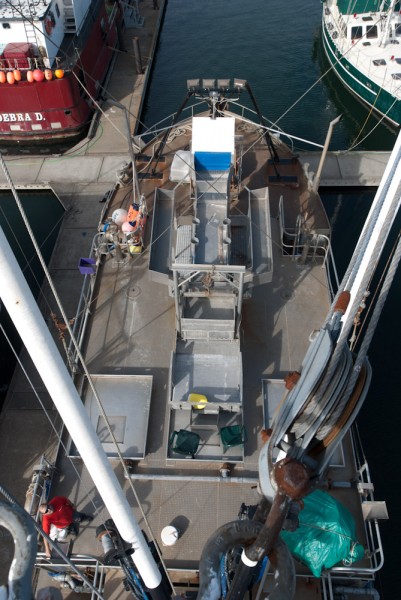
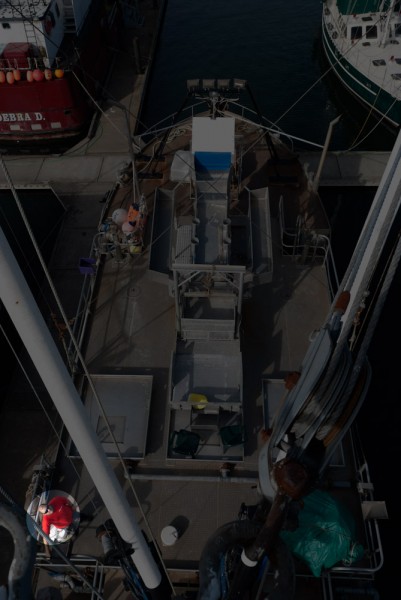
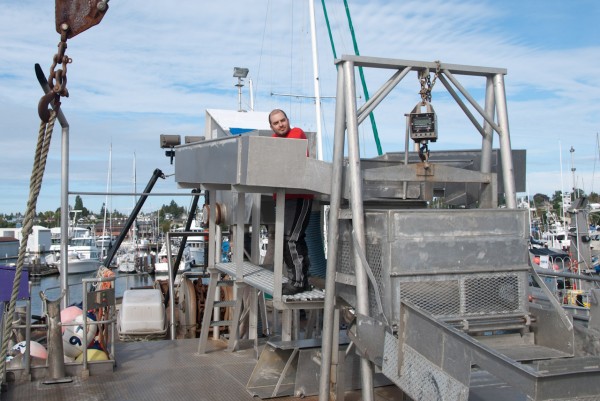
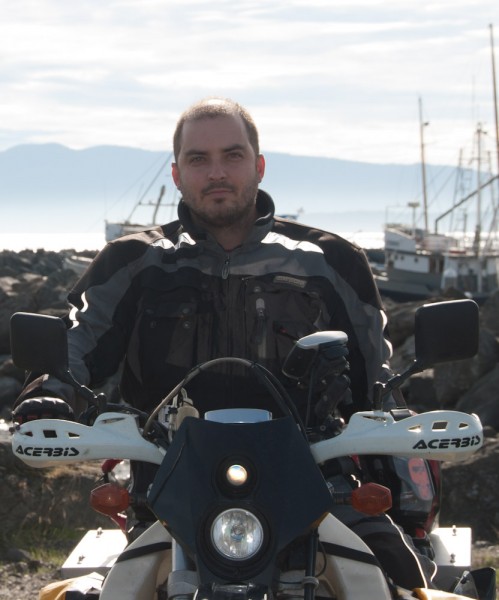
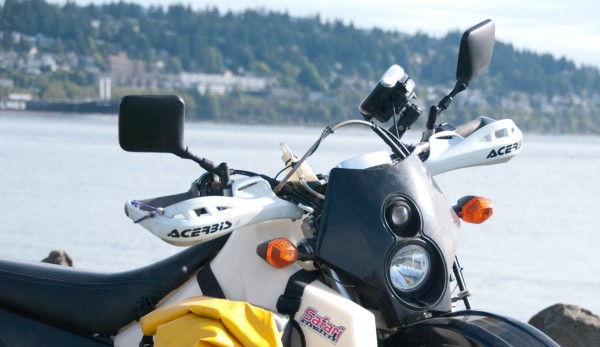
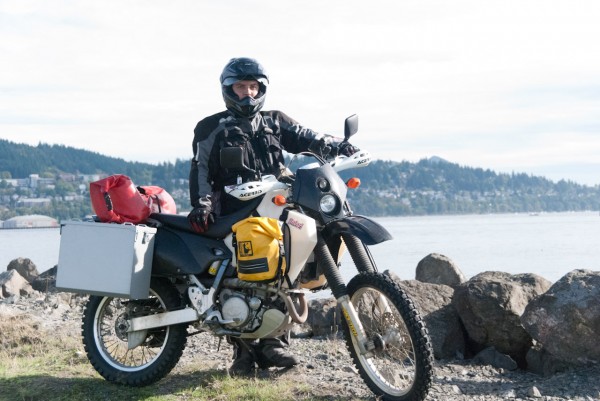
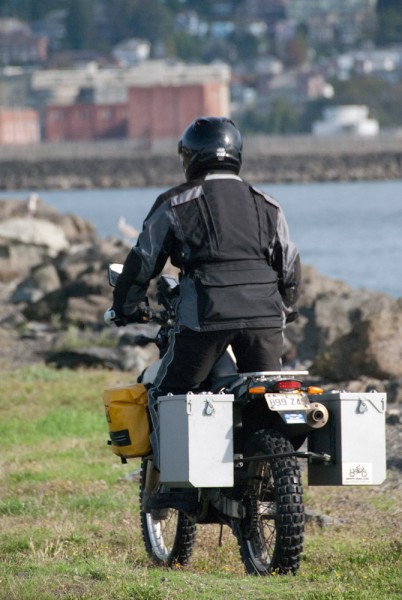
That’s some good peg ridding, Dave!
We really enjoyed your fishing tender story, My wife and I have been talking about doing just that, operating a tender in Alaska. As I said we were just talking about it, and I’ve done some purse fishing out of Ketchikan, but have never thought about tending. We were hoping you give us some suggestions or ideas we would need or use to operate a tender in Alaska. As we are starting with our ideas we really don’t have a boat or an idea of how much a tender would cost. What would a 150ft. Tender cost and /or what is an operating costs (fuel, grub, and licenses run for a season? We would appreciate any helpful information you could offer, as I said we really enjoyed your story and experiences you shared. We are really considering trying our hand at tending fisheries.. Just talking